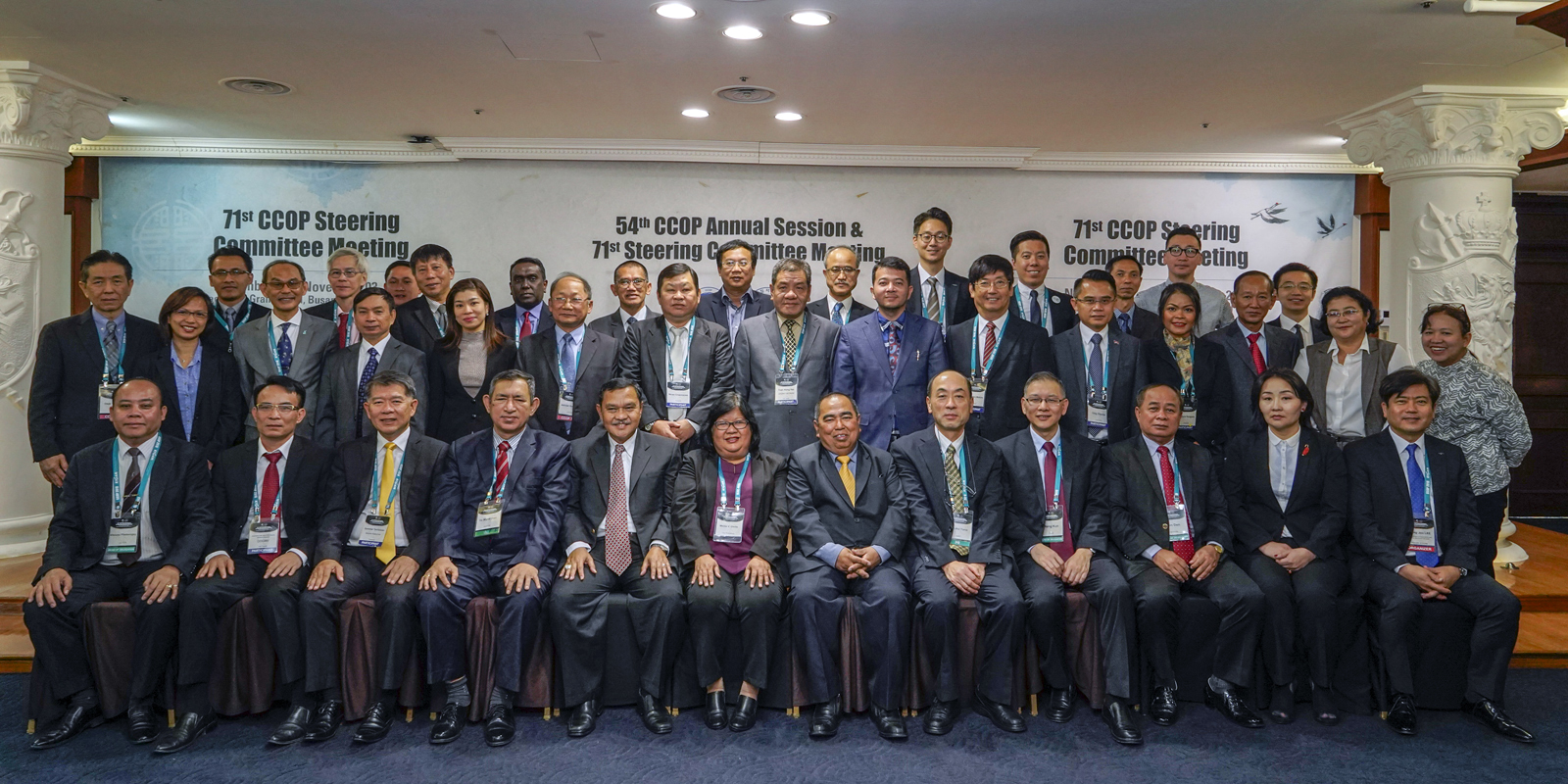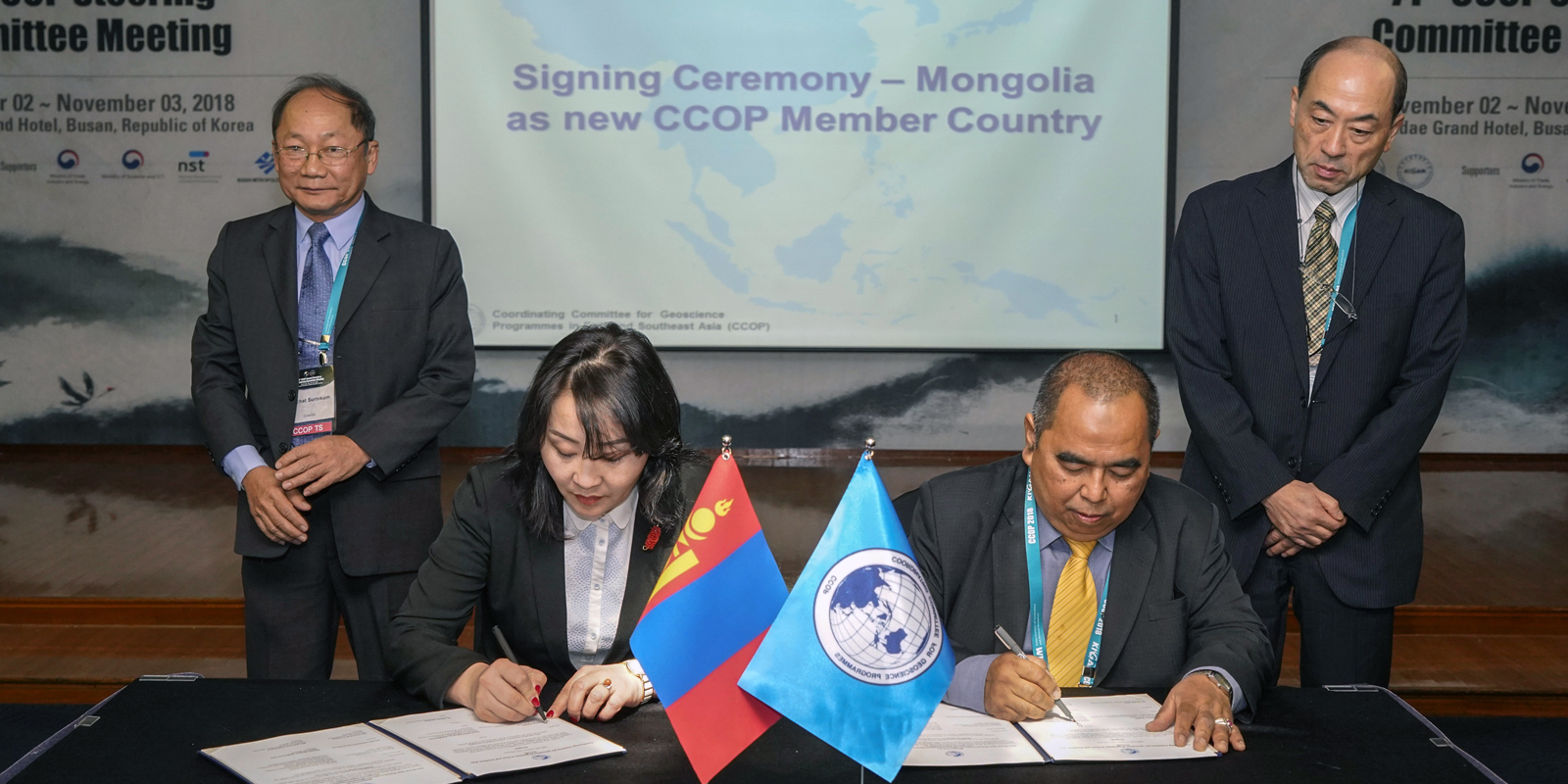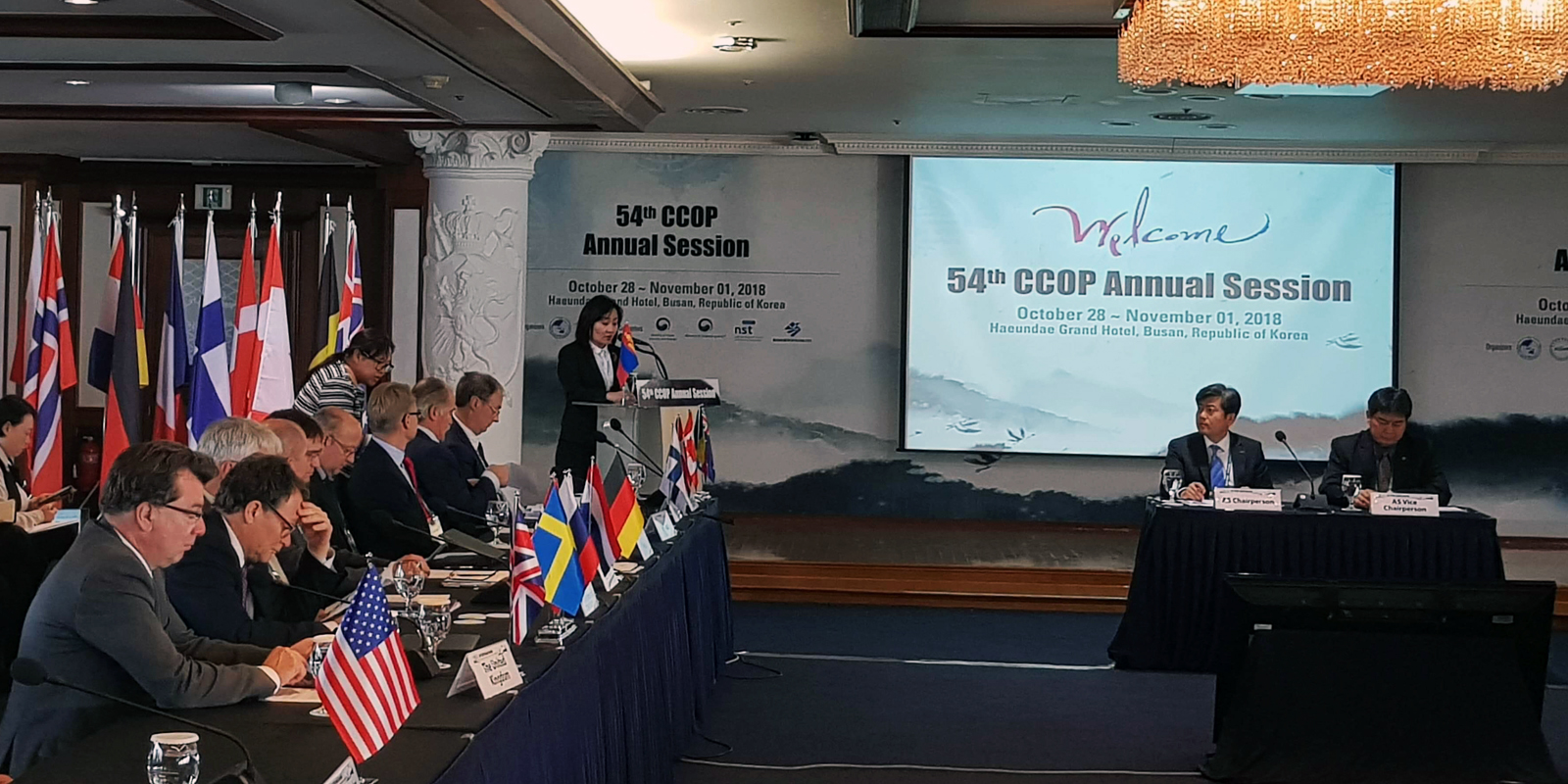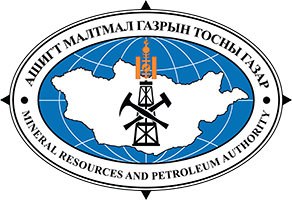Mongolia became a member of CCOP - Coordinating Committee for Geoscience Programmes in East and Southeast Asia

The delegation led by Sunjidmaa.B, Head of Geology and Exploration Division, Mineral Resources and Petroleum Authority of Mongolia, successfully signed an agreement for becoming a member country during The 54th CCOP Annual Session and 71st Steering Committee Meeting held in Busan, Republic of Korea on October 29 to November 2, 2018.

The CCOP is an intergovernmental organization aimed to facilitate and coordinate the implementation of applied geoscience programmes and projects in order to contribute to economic development, enhancement of geological information management, environmental protection and their policies.

The CCOP has fourteen member countries: Cambodia, China, Indonesia, Japan, Korea, Lao PDR, Malaysia, Myanmar, Papua New Guinea, Philippines, Singapore, Thailand, Timor-Leste and Vietnam. It is supported by fourteen cooperating countries namely Australia, Belgium, Canada, Denmark, Finland, France, Germany, The Netherlands, Norway, Poland, Russian Federation, Sweden, United Kingdom and the United States of America. Mongolia became a 15th member country of the CCOP.
As Mongolia becomes a member of CCOP the amount of opportunities provides to its members countries to new innovations and good practices of geoscience and expertise, to exchange ideas, to participate in projects, to get an support in resolving issues, capacity building of national experts through participating in various trainings organized by CCOP and most of all gaining latest geoscientific informations free of charge supplied by member countries, co-operating countries and co-operating organizations.
The emphasis was emphasized on new era of geosciences coming into forefront in challenging sectors such as global warming, climate change, natural disasters, infrastructure development and transportation. This opens an opportunity for Mongolia to educate young people in natural sciences and to collaborate with other countries for research and joint research programmes.
